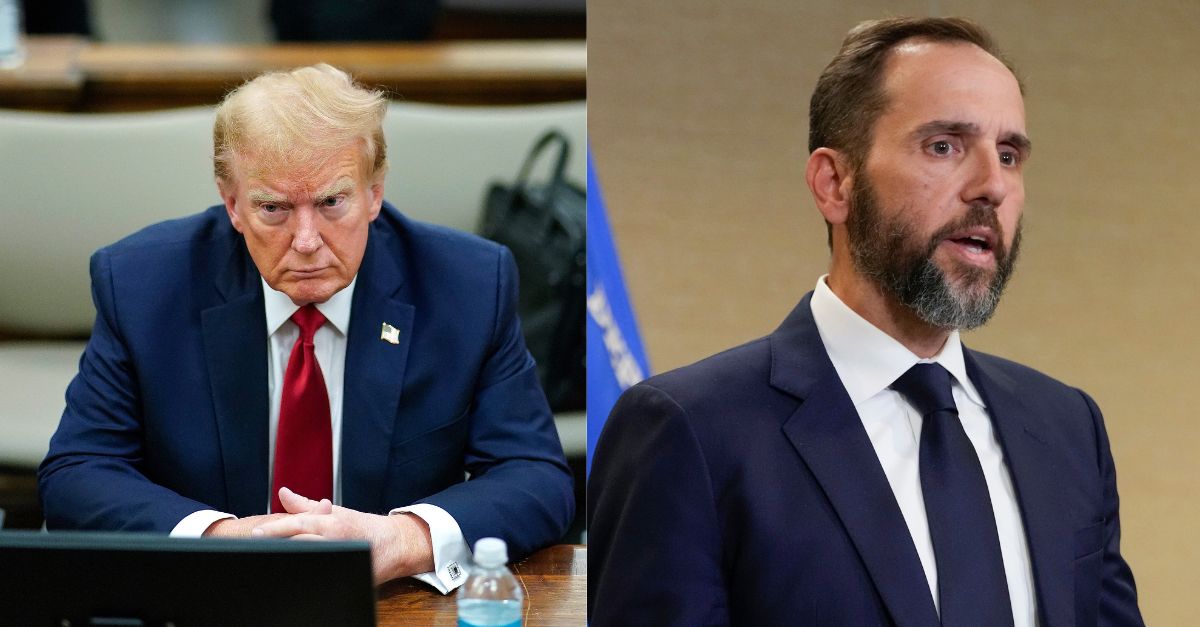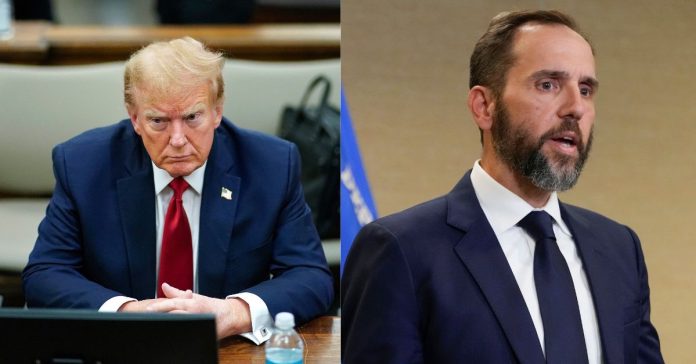
Left: Former President Donald Trump, center, sits at the defense table at New York Supreme Court, Dec. 7, 2023, in New York City. (AP Photo/Eduardo Munoz Alvarez, Pool, File)./Right: Special counsel Jack Smith speaks about an indictment of former President Donald Trump, Aug. 1, 2023. (AP Photo/Jacquelyn Martin, File).
A request by former President Donald Trump for a rehearing of a narrow gag order imposed on him in his election subversion case in Washington, D.C., was denied on Tuesday.
The 1-page order from the D.C. Circuit Court of Appeals is short on details. Trump could appeal the ruling to the U.S. Supreme Court.
In his December petition for a ruling from the entire appeals court, Trump claimed that its three-judge panel initially erred when it found Trump did not have the vast and sweeping First Amendment protections over public statements made while under indictment.
U.S. District Judge Tanya Chutkan, who presides over his indictment in Washington, D.C., alleging he criminally conspired to subvert the 2020 election, imposed a narrow gag order on Trump in October after special counsel Jack Smith sought one not long after Trump’s August indictment.
After Trump’s outbursts online and at public events where he lashed out at prosecutors, potential witnesses, the charges themselves, the Justice Department and Chutkan, Smith wanted to bar the former president from making any further public attacks, particularly on court staff and prosecutors and their family members.
Chutkan saw fit to limit Trump’s language on this front, telling him she wouldn’t let him run a “smear campaign” against prosecutors or court staff, The Associated Press reported.
Unsatisfied, Trump appealed and when three judges on the appellate panel in Washington, D.C., first heard his arguments, they ultimately agreed with Chutkan’s terms. The panel also emphasized that Trump was not being censored nor silenced and that criminal defendants such as himself had a strong interest “within reasonable bounds” to criticize the nature of the charges against them and the prosecutor bringing them.
Judge Patricia Millett also excoriated Trump last December for his unconvincing claim that prosecutors had been simply unable to point to any proof that his commentary about the indictment or prosecutors would spur violence.
That position “gives no inch” to the need to protect the integrity of the criminal justice process, she found.
“Tellingly, Mr. Trump was unable to identify any example of speech that could be protectively proscribed by the district court that was not already a violation of the criminal law, and so also of his release condition to comply with applicable federal, state, and District laws,” Millett wrote.
At oral arguments at the appeals court on Nov. 20, Trump’s attorney John Sauer said Chutkan’s gag order had set a “terrible precedent” and that it was “categorically unconstitutional.”
A spokesman for Trump was not immediately available for comment Tuesday.
Have a tip we should know? [email protected]

